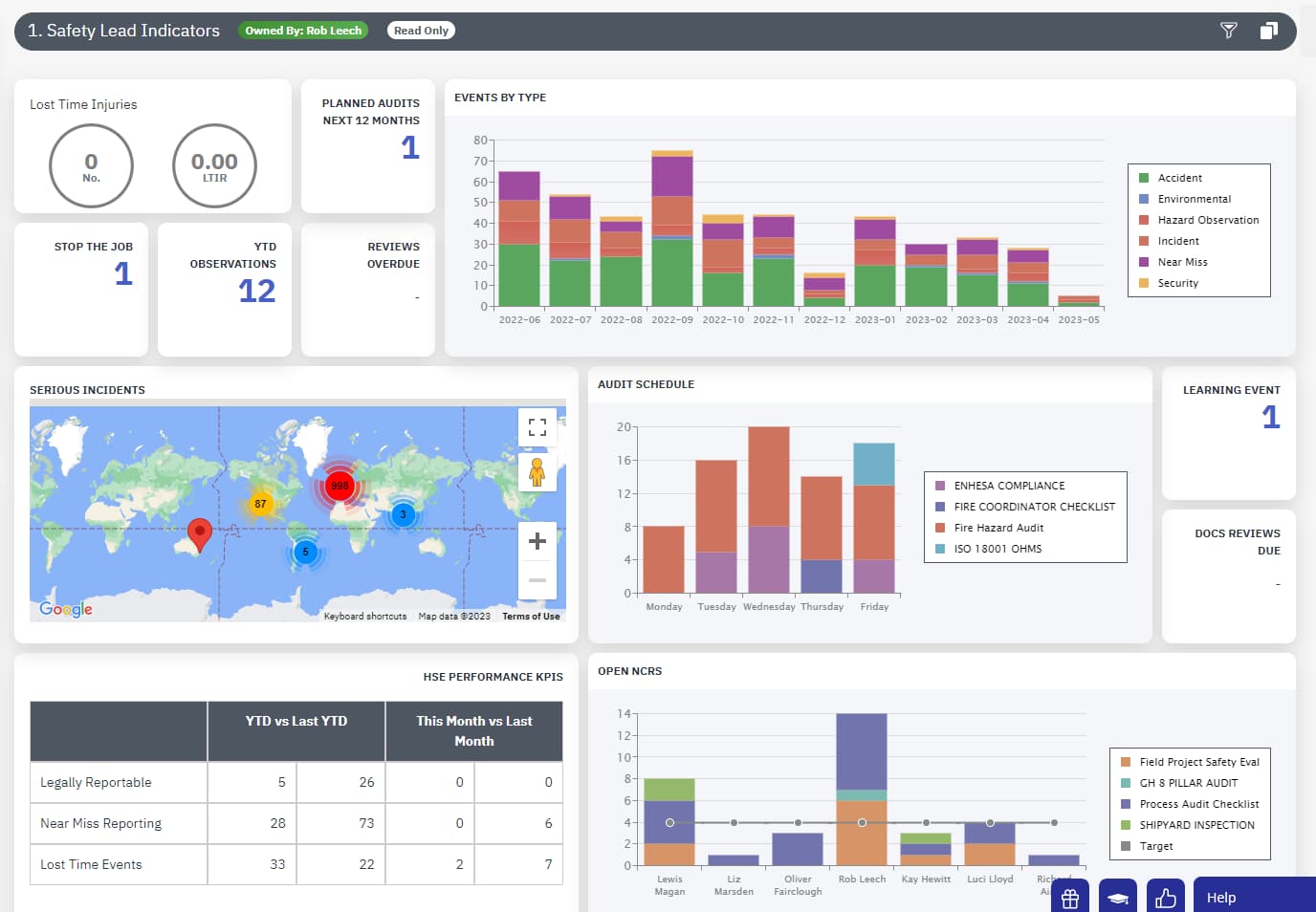How strategic EHSQ is transforming ESG solutions
Helen Jones, Chief Operating Officer – Enterprise, was recently interviewed by The Institution of Occupational Safety and Health (IOSH) the chartered body and largest membership organisation for health and safety professionals. Helen joined EcoOnline in July 2018 as Managing Director of Certification. In her current role of Chief Operating Officer, she is responsible for managing solutions that best meet the needs of large organisational clients. As a chartered civil engineer, she has over 15 years’ experience in a variety of senior leadership roles across the construction and services sectors.
What is strategic EHSQ (environment, health, safety and quality) and why does it matter?
The way organisations manage operations to take care of people, customers, communities and the environment has become as important as products and services themselves. Beyond traditional risk mitigation and compliance, there is now an increasingly strong focus on EHSQ to benefit not only the organisation, but employees and the wider public.
An effective EHSQ strategy allows senior management and teams across the business to see and understand the fundamental link between EHSQ performance and business performance. Whether it’s to reduce emissions, embed ethical behaviours or safeguard workers’ wellbeing, excellent companies that generate the best outcomes for stakeholders operate on more than financial values.
Businesses need to prove they’re managing operations without compromising safety, sustainability or ethics. And it’s clear people are voting with buying habits – which brand they choose – and for stakeholders, which companies they work with. Companies that put employee wellbeing at the heart of their practices are more successful, more profitable, see less attrition, higher engagement scores and are more productive. It’s also about reputation. That’s why EHSQ matters.
Why do EHSQ platforms have a leading role to play in environmental, social and governance (ESG)?
There’s a clear common ground and overlap between the two areas. EHSQ is an established field based on data visibility and driving change and improvements to influence stakeholders and get things done.
Just as we’ve seen the significant shift in how businesses approach and manage health and safety in the last 30 years, there’s now an important leading role for EHSQ professionals to play a key role to do the same in the ESG space. A successful ESG programme will need the same critical elements to drive change and influence internal alignment and visibility of data. With the expertise of EHSQ platforms and professionals, it’s about doing it again for ESG.
As the EHSQ technology sector continues to grow at pace, how would you encourage more women to consider a career in STEM?
More and more organisations are looking to remove barriers to entry and embrace talent pools, but businesses have a responsibility to make roles more accessible. That starts during at the recruitment process, so it’s clear to women that roles are inclusive and they can grow through their careers. More role models talking about accessing education and opportunities will also help to make sure women are not switched off from applying for roles, particularly if they’re based on certain requirements. There’s also a need to positively encourage candidates and educate them that roles are not just about tech or inputting data. It’s about problem solving, relationships, and how those bring about outcomes – that is what drives STEM-based roles and should be promoted in schools.
How has EHSQ tech helped transform EcoOnline’s customers?
EHSQ technology has transformed how C-suites run their businesses. It’s also helping to improve accessibility so clients with workers on the frontline can use technology to engage with them, from health and safety to whistleblowing using targeted access and QI codes. Having ‘data on the go’ means clients have all the facts on hand when they’re on-site and can ask targeted questions to drive outcomes and change. A recent client example is Tesco, which wanted to streamline its risk management processes across EHSQ.
What changes can we expect to see in the next three to five years?
We’ll see a greater focus on suppliers as businesses look beyond their own organisations and understanding EHSQ across the supply chain. That’s where, as an extension of their business, there is a greater level of risk.
EHSQ professionals are thinking much more widely and more holistically, which is a trend that’s going to continue. Partner that with the rise and prominence of ESG, which will become more important as time progresses.
Next steps
To go into more depth on these questions you can read the full article on the IOSH website: https://www.ioshmagazine.com/issues/2020/july-august-2022




